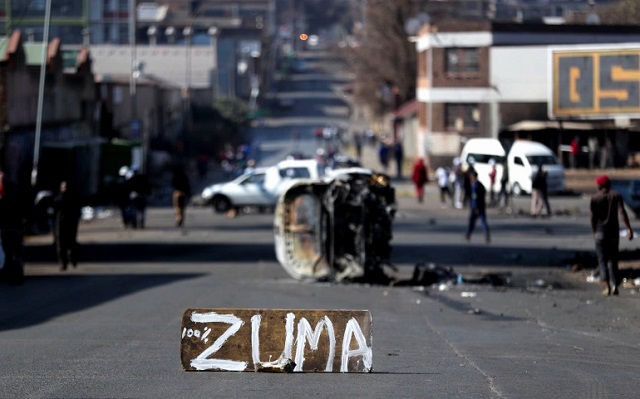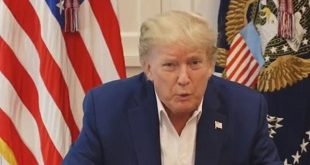
Why the arrest and detention of Jacob Zuma is dangerous for the unity and stability of the “rainbow nation”
THE LAST WORD | ANDREW M. MWENDA | The arrest and detention of former South African president, Jacob Zuma, for contempt of court is a sad event. No wonder, many South Africans have taken to the streets in violent protests at it. It is very possible the arrest of Zuma can lead to the disintegration of the post-apartheid state in South Africa, at least as we currently know it. This is largely because post-independence African elites use theories drawn from textbooks, written at Harvard and Cambridge, Stanford and Oxford, explaining experiences of Europe and North America, as the solution to our problems.
South Africa is a multi-ethnic state, hosting several ethnic and racial groups. These groups are sometimes hostile to each other, often very suspicious of the other – especially their intentions. The biggest challenge today is therefore one of nation building i.e. how to make these different ethnic and racial groups develop a common national consciousness. To achieve this requires appreciating the psychology of these different groups, most especially their fears and suspicions. It is on this basis that one can craft laws, policies and practices that address these fears and suspicions.
In 1994, the ANC under the leadership of Nelson Mandela seemed to appreciate this. It recognised that white people, for instance, were a rich and powerful minority who had dominated and terrorised black people for generations. The guilt of their actions had made them afraid, in fact terrified, of democracy. They saw majority (black) rule as a threat to their economic dominance, cultural life and a diminution of their racial status. If you were a black person who had been denied economic and other social opportunities like education, health and your cultural life, these fears of a privileged white aristocracy bordered on excessive self-indulgence.
Mandela’s aim was to build a rainbow (multi-ethnic, multi-racial) nation. To achieve this goal required making a series of compromises and giving a number of concessions to this privileged white aristocracy, many of which were morally offensive to the majority of black, colored and Indian people. Many people in these other racial groups felt that to redress the wrongs of apartheid required the expropriation of white property – land that had been forcefully taken from black people, mines that were privately owned, banks and other businesses that had been built on the back of forced or poorly paid black labor, etc. These feelings were strong.
But Mandela understood, that however much many black, colored and Indian people may feel that compromise with apartheid is immoral, it was important to accommodate the fears of the white minority, not only in law and policies but also in practices. Anyone who has watched the movie Invictus (based on the book by John Carling titled Playing the Enemy), would remember how Mandela demonstrated the importance of gesture in political and social reconciliation. There is a dramatic scene where Mandela goes to an ANC meeting that had just abolished the name Springbox, the South African nearly all-white national rugby team.
He tells the meeting that it is important to make whites feel a part of the new nation. One way to do this is to tolerate and even embrace their cultural symbols – like keeping the name Springbox. He himself had learnt and spoke fluent Afrikans, the language of white south Africans. There are many criticisms we can make of Mandela’s compromises with and concessions to whites. But there was one underlying theme: that to build a nation requires, and indeed demands, accommodation with things that may even be repulsive to your people. This demands political acumen, not legal theories.
 The Independent Uganda: You get the Truth we Pay the Price
The Independent Uganda: You get the Truth we Pay the Price



The events in SA while regrettable and unfortunate, have again reminded us African peoples the complex relationship between criminality and tribal politics. PLO Lumumba likes putting it thus ‘he is a thief but he is our thief ‘. From the outset up to the day of his impeachment, the Zuma presidency was clearly aimed at assuasing some tribal tendencies. That he stole and other scandlelike prattles like unpaid Labolla.or when he claimed to have taken a bath after molesting a daughter of a former comrade seem to have been aimed at preparing the nation for the final showdown. One thing I have always argued is that the larger ethnic groups in Africa have played into the hands of our post colonial masterminds. Go to Kenya Nigeria, or even here in Uganda you see criminals prospering when their tribe is in power.This at all times has determined the direction of our politics and sadlly our judiciary. Even after jail Zuma will remain a richman and the average Zulu will feel one of their own has made it and the believer in justice will wonder what is wrong with their beliefs.
Thanks
Mr Anderea (Andrew) you’re mixing politics with criminology for convenience’s sake! And I do understand why you opine like that; because you know that as day follows night, whatever is happening in South Africa (xenophobia, tribal, racial etcetera lootings), is 99.9% likely to happen here in Uganda when finally M7/NRM is out of power!
What is happening in M7’s Uganda today – western Uganda versus the east and northern Uganda – is no less than apartheid!
It will happen when and not “if” is M7/ NRM is out of power
Unless you take deliberate steps and advice the emperor that he’s naked, today’s South Africa is visiting Uganda and time!
“No matter how long a pig stays in water it will never become a crocodile “
1.The mistake most Africans make is that they always have a scapegoat for their inefficiency. Something small can trigger a confrontation with the Whites.The riots that followed after the arrest of Zuma shouldn’t have taken place its just that the most of the security personnel are blacks and they were comprised thats why they just looked on as looting was taking place.
2.Even after the end of Slavery; The blacks still have issues with the Statutes that were erected in memory of the Whites who haunted their ancestors.
3.80% of the inhabitants of South Africa are Blacks while the 10% are Whites;This is naturally bound to cause chaos.
4.During the apartheid period; the whites should have set boundaries of where they would live and leave the rest to the Blacks.
5.The elites of then like Mandela,Desmond Tutu were overwhelmed and preoccupied with the end of apartheid which the Whites hoodwinked them into ending and instead surrendered Politics to the Blacks while they managed the Economy.
6. The Political fire brands like Julius Mwalema ,Zuma are preoccupied with Democracy they rarely advocate for Africans to have shares in Businesses in S.Africa all they rally for is increase in pay which is nothing compared to the resources in S.A.
7.The parliament of S.Africa should advocate for Nationalizing of the key resources and sources of income like Mimining,Industrilaztion,Toursim so that the Blacks can participate and enjoy the natural resources of South Africa otherwise if they dont advocate for that,the riots will never end.
The challenge is that black africans can
never master the economic fundamentals needed to run such a huge
economy like South Africas. They all aim
at Political Power which is easy to master through bribing and corrupting and use of raw force. Try that on the economy and you have the current scenarios of African economies.
One thing I’ll clarify you about is that F.W de Klerk did not commit any mass murders as you put it in your essay. I lived in South Africa during his tenure..